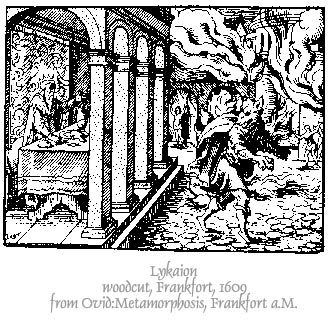Participants:
Rebecca Halat (Minnesota)
Cynthia Jones (Buffalo)
Katie Jones (Nottingham)
Sarah McMahon (Arizona)
Jennifer Solheim (Michigan)
Jane Weston (Bristol)
We began our first seminar with an introductory discussion of what we understand the discipline of ‘French Studies’ to include, as well as possible future directions for the seminar series and reading group. It quickly became clear that, while course content and preferred methodologies differed between participants’ various home departments, what we had in common was an interdisciplinary approach to French Studies. Participants’ research interests were wide-ranging and included theories of humour, disgust, intersectionality and gender, as well as the study of bande dessinée, non-metropolitan Francophone literatures, music, film, comparative European literature, folklore and avant-garde theatre.

Cynthia Jones (SUNY at Buffalo) then opened the seminar series with an early version of her paper ‘Is the Big Bad Wolf Really Bad or Just Misunderstood?’, to be presented at the 10th Global Conference on Perspectives on Evil and Human Wickedness, which will take place from 16 to 19 March in Salzburg, Austria. Using a model of lycanthropy taken from anthropologist Robert Eisler’s 1948 study Man into Wolf, Cindi analysed three tales from different cultures – the story of King Lycaon in Ovid’s Metamorphoses, the twelfth-century lai Bisclavret by Marie de France, and the African-American tale Manawee – arguing that the marginal figure of the werewolf represents an intrinsic part of human nature which we try to deny: our animality. The stories may be read as fables which demonstrate that repressing our animal nature altogether is as damaging as allowing it to take over; they suggest instead a need to acknowledge and balance our animality with other aspects of our nature.
Rebecca Halat (Minnesota)
Cynthia Jones (Buffalo)
Katie Jones (Nottingham)
Sarah McMahon (Arizona)
Jennifer Solheim (Michigan)
Jane Weston (Bristol)
We began our first seminar with an introductory discussion of what we understand the discipline of ‘French Studies’ to include, as well as possible future directions for the seminar series and reading group. It quickly became clear that, while course content and preferred methodologies differed between participants’ various home departments, what we had in common was an interdisciplinary approach to French Studies. Participants’ research interests were wide-ranging and included theories of humour, disgust, intersectionality and gender, as well as the study of bande dessinée, non-metropolitan Francophone literatures, music, film, comparative European literature, folklore and avant-garde theatre.

Cynthia Jones (SUNY at Buffalo) then opened the seminar series with an early version of her paper ‘Is the Big Bad Wolf Really Bad or Just Misunderstood?’, to be presented at the 10th Global Conference on Perspectives on Evil and Human Wickedness, which will take place from 16 to 19 March in Salzburg, Austria. Using a model of lycanthropy taken from anthropologist Robert Eisler’s 1948 study Man into Wolf, Cindi analysed three tales from different cultures – the story of King Lycaon in Ovid’s Metamorphoses, the twelfth-century lai Bisclavret by Marie de France, and the African-American tale Manawee – arguing that the marginal figure of the werewolf represents an intrinsic part of human nature which we try to deny: our animality. The stories may be read as fables which demonstrate that repressing our animal nature altogether is as damaging as allowing it to take over; they suggest instead a need to acknowledge and balance our animality with other aspects of our nature.
No comments:
Post a Comment